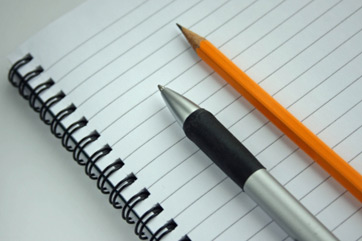
On Saturday, I gave a workshop at the Ottawa Art Gallery that promised the following:
This practical seminar will lead participants through activities on a few aspects of professional art writing: generating raw material, identifying potential publications and story formats, pitching story ideas, freelancing, and self-editing. The increasing options in self-publishing will also be discussed, and time will be reserved for participant questions and input.
I really only scratched the surface of these topics in the time available, and I appreciated the energy, patience and stamina of those attending in terms of the limits of the day and of the, ahem, instructor.
In any case, I returned from the day with a variety of questions and notes. Here's a sampling. Many of them are basic questions or ones that most writers have already visited and revisited. Still, they stuck in my mind:
How does our view of (and writing about) an artwork change when we take at least 10 minutes to look at it as opposed to 1 minute?
How scary or uncomfortable (or maybe discovery-enhancing) can it be to look at art and try to engage it or make notes on it without doing preliminary research about the artist or the exhibition?
How does our view of an artwork change when we (similarly) do not look at the name of the artist on the accompanying label but simply at the work itself?
How useful is it to promote more writing on art when there are few venues that pay writers for such texts? Or few venues that publish such texts, period?
Some people perceive art writing to be much less lively and vital than movie writing. To what can we attribute this?
If one is a full-time journalist, how is one supposed to cover art when one finds it mundane--eliciting no strong reaction?
Is there a website in Canada where people can connect to discuss art writing or art criticism?
These are just a few of the questions that stuck in my craw. Some of these issues have already been discussed previously on my blog and of course elsewhere, but just wanted to commemorate. I already posted some of these questions to Twitter as well, where @GWHatt (Kitchener-area curator Gordon Hatt) and @hollygowritely (who I believe may be Ottawa journalist and workshop attendee Holly Gordon) had some great comments and clarifications to make. Both worth a follow!
(Incredibly realistic and definitely not Photoshopped writing pad image from Degree Directory)
Monday, February 21, 2011
Seminar Notes: Ottawa Art Gallery Workshop
Subscribe to:
Post Comments (Atom)

7 comments:
Howdy!
Since I presume that your questions were not rhetorical, here's my stab at answering them.
1. About the same as your view of a movie would change after watching the whole thing instead of just the trailer.
2. About the same as trying to engage in or make notes on biology, physics or any other topic with which you are unfamiliar.
3. Like reading a book without knowing the author.
4. Three words: Very, Extremely and Completely.
5. Academic art speak.
6. The same as when you are "asked" to write an article about the mundane city council meeting where all they do is approve construction permits. It's what separates the great writers from the hacks.
7. Lots, for instance this one here. And then if you want to variety of voices, try the following:
MTLMilieu
A Portrait of the Visual Arts in Canada
In situ
HeleneCaroline Fournier
Marc Gauthier
museomuseo
ratsdeville
Reading Art
The Belgo Report
Un show de Mot'Arts
View on Canadian Art
And I'm certain that there are others as well that I missed.
Thanks Zeke! That's all really helpful. I'm on the go right now but look forward to updating my blogroll with some of those links soon.
Borrowed these Qs over at simpleposie, Leah. Interesting!
J@simpleposie
Cool, thanks Jennifer!
FYI Zeke - I've updated the sidebar now with your links! Thanks for suggesting them... a number in there I haven't seen before.
Leah
Hi!
I signed up for your workshop in Ottawa but unfortunately it was already booked out. Good for you! Now I'm glad to find some notes about it here.
To your second and third question: I don't think it's scary to look at art without preliminary research. The first, immediate impression counts a lot! How does the beholder react directly? It is important to keep that impression in mind when we find out details about the artist and the work afterward.
Of course, this will change the first impression - but is this not the great thing about art writing: to discover the underlying, hidden implications and stories?!
Therefore, I would say that both is equivalently important: the impact of the artwork on the beholder (and not only on us, also on other people who have not such an in-depth insight in arts!) and the research.
Hi Anja,
Thanks for your comment. Sorry you couldn't make the workshop!
I agree with you, both experience of the work and secondary research are valuable.
Often when I go into a gallery I try to avoid looking at the texts at first just to see what the research of looking brings up.
I was just surprised to learn in the seminar that some people felt they had to always "read up on the art" before they went to see it -- that their "unprepared" reactions weren't in some way valid or useful.
I do thinking looking itself is an essential form of primary research on a work, even if it is a subjective one.
Post a Comment